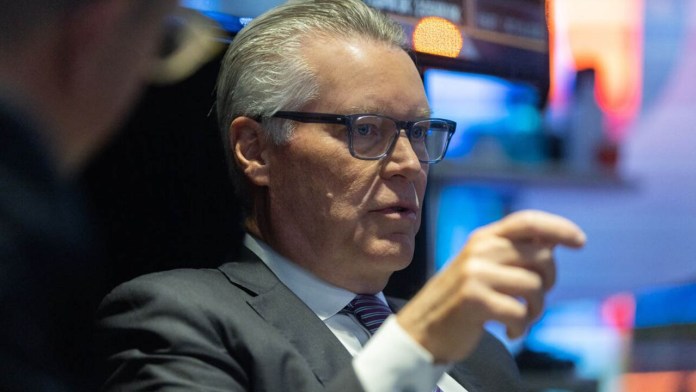In the fast-paced world of air travel, where milliseconds matter and flawless execution is paramount, even the most robust systems can falter. This reality hit home hard for Delta Air Lines and its passengers recently, when a technological outage grounded and delayed thousands of flights worldwide. At the center of this storm stands Ed Bastian, the CEO of Delta Air Lines, who found himself in the unenviable position of apologizing to customers for disruptions that rippled across the globe.

The trouble began with a seemingly routine software update from a cybersecurity company, a move intended to bolster Delta’s technological defenses. However, what followed was anything but routine. The update inadvertently triggered a cascade of issues within Delta’s extensive network of applications, particularly affecting those reliant on the Microsoft Windows operating system. One critical tool, integral to crew tracking and scheduling, bore the brunt of the malfunction, struggling to manage the unprecedented volume of flight changes and disruptions.
The timing couldn’t have been worse. The outage struck on what was slated to be one of the busiest travel weekends of the summer, with Delta’s flights already operating at peak capacity. “Our booked loads exceeded 90%, limiting our re-accommodation capabilities,” lamented Bastian in a heartfelt column addressed to Delta’s customers. “I want to apologize to every one of you who have been impacted by these events,” he continued, acknowledging the frustration and inconvenience faced by travelers worldwide.

Delta’s response was swift but faced with the magnitude of the disruption, far from seamless. Teams of dedicated professionals, working tirelessly around the clock, scrambled to restore functionality and mitigate the fallout. Despite their best efforts, the ripple effects persisted well beyond the initial incident. As of Monday, July 22nd, the situation remained fluid, with ongoing efforts to normalize operations and uphold the airline’s reputation for reliability.
In recognition of the disruption caused, Delta implemented a series of customer-focused measures. These included travel waivers allowing passengers to modify their itineraries without penalty, alongside provisions for meal vouchers, accommodations, and transportation where feasible. Additionally, as a gesture of goodwill, impacted travelers were offered Delta SkyMiles and travel vouchers, aiming to ameliorate the inconvenience and restore customer faith.
Bastian took the opportunity to commend Delta’s employees, whose dedication and resilience shone brightly amidst the chaos. “I want to thank Delta’s employees, who have been working tirelessly across our system to restore our best-in-class operation and take care of you during a very challenging situation,” Bastian expressed, underscoring the critical role of Delta’s team in weathering the storm.
For Delta Air Lines, known for its commitment to seamless travel experiences, the recent technological hiccup served as a stark reminder of the fragility of modern air travel infrastructure. As the airline industry continues to grapple with ever-evolving technological challenges, Bastian and his team remain steadfast in their commitment to learning from this incident and further strengthening Delta’s operational resilience.
As travelers await clearer skies ahead, Delta Air Lines stands resolute in its promise to keep passengers informed and to uphold the high standards of service and reliability they have come to expect. Through transparency, accountability, and unwavering dedication, Delta Air Lines endeavors to emerge stronger from this turbulent chapter, reaffirming its position as a leader in global air travel.
In the unpredictable world of aviation, where even the most advanced systems can falter, Delta Air Lines and its CEO Ed Bastian remain steadfast in their mission to connect the world—despite the occasional turbulence along the way.







